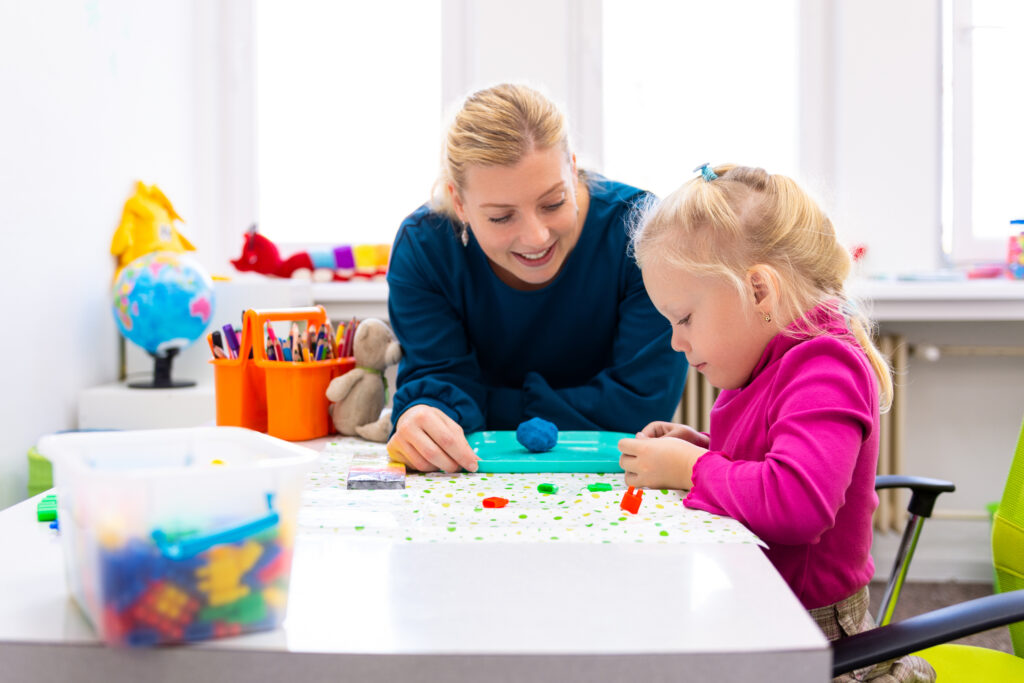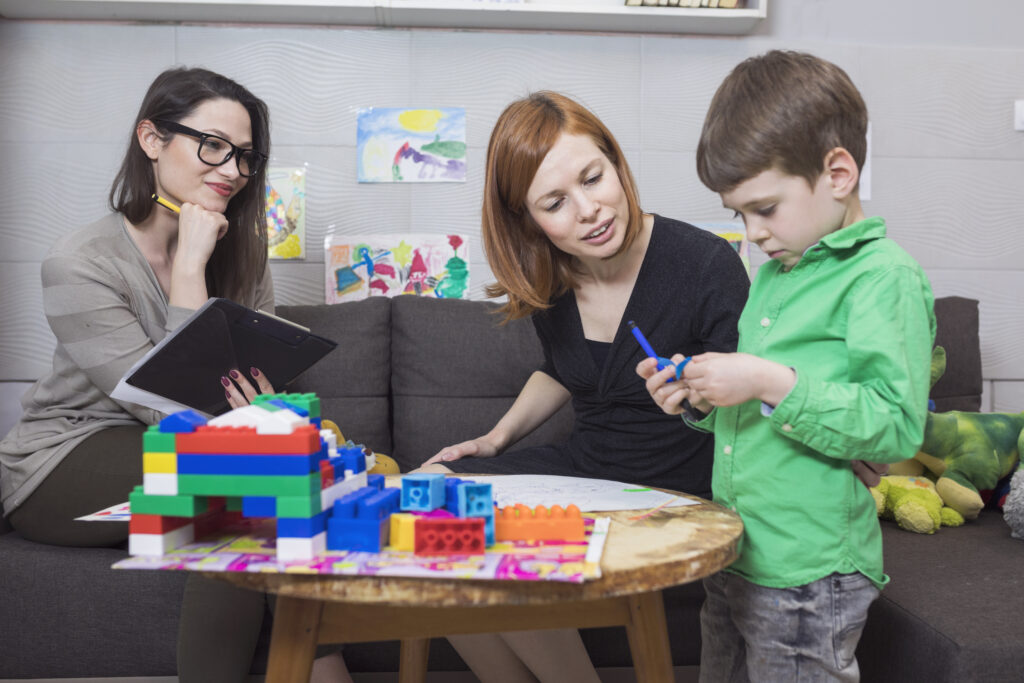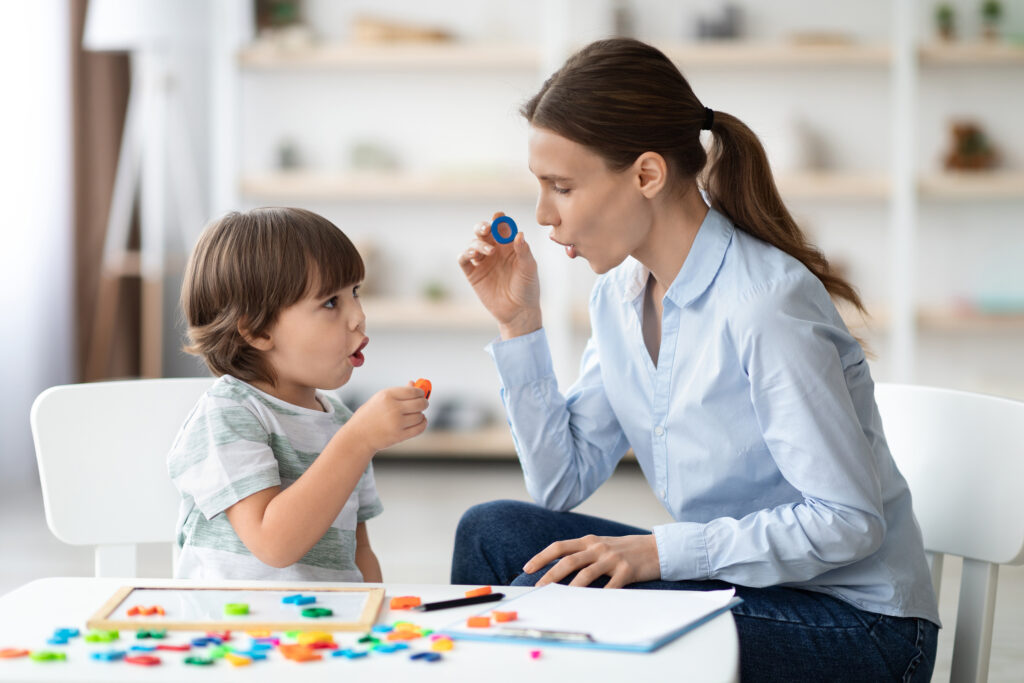 Unfortunately, for children on the autism spectrum, this is often a much more difficult process due to the complexity of such skills as emotional reciprocity, interpretation of body language, and narrowed interests, among others. As parents, it can often be pretty daunting and overwhelming to endeavor into a social situation when we are unsure how our children will react to it. None of us want to deal with meltdowns and tantrums. And when we add in the complexities that come with autism, it can certainly feel easier to just not put our children in those settings, however, we all know that practice makes perfect… or at least better.
Unfortunately, for children on the autism spectrum, this is often a much more difficult process due to the complexity of such skills as emotional reciprocity, interpretation of body language, and narrowed interests, among others. As parents, it can often be pretty daunting and overwhelming to endeavor into a social situation when we are unsure how our children will react to it. None of us want to deal with meltdowns and tantrums. And when we add in the complexities that come with autism, it can certainly feel easier to just not put our children in those settings, however, we all know that practice makes perfect… or at least better.
It is vital to remember that mastery is not an overnight process. Each interaction,with the right supports, is a tiny step toward positive change. If you think about it, it’s kind of silly to expect anything else. We certainly didn’t learn how to behave appropriately by attending one birthday party as a kid. It took us dozens if not hundreds of interactions with friends to really learn those social skills.
So how do we approach social interaction “correctly?” Here are a few tips that may help us as parents gear up to enter these social situations:
-
- Plan on attending an event. Find something that the whole family can enjoy like a trip to the children’s museum or a birthday party. Sometimes this step can be the hardest because there is so much unknown, but remember that unless we try, we won’t see improvement. It’s ok if you only plan on attending for a little while! Baby steps are just fine.
- There is no right or wrong way to behave. Keep in mind that many children with autism may have a very concrete way of thinking. Identifying a behavior as “wrong” they may generalize that across every situation. For example, when watching a play, a person would not shout and cheer on the actors during a scene, but that is something we can do at a football game. So instead of using the terms “right” and “wrong,” try using “expected” and “unexpected.” This allows for fine tuning of behavioral expectations depending on the specific situation. Try prepping for a specific interaction by discussing expected and unexpected behaviors, and reflecting on it after the fact by talking about what things that happened were expected and unexpected.
- Don’t assume. As we have already discussed, we have been in thousands and thousands of social situations that have given us a road map to help navigate without having to think about it. Children do not have that road map so do not assume they know where to go next. Help them by reminding them how to greet others and explicitly acknowledging when a conversation has begun or ended. There are so many things we do without even realizing it, and by becoming more aware of all the steps it takes makes it easier to communicate them.
- Praise them for what they do well. This seems like a no-brainer, but it is so easy to let the successes pass us by when we are worried about the failures. No one ever told us “great job!” for knowing when a conversation ended so it’s very easy to forget to do it for our children, but it makes all the difference in the world. Celebrate the victories no matter how small!
- Discuss. When the event is over, take some time to have a conversation. This can be with the whole family or one-on-one. Recap what expected or unexpected things happened, talk about what skills they used, and praise them again for everything they did well!
Let’s see these three steps in action! In the summer, Bubble Trucks are a fun way for kids (and adults) to have fun while staying cool! In our Allen location we invite a bubble truck to visit a few times a year to get some of those social interaction reps in with the help of our amazing therapist team. Here is how we put these three steps in action!
-
- Pick an outing! We love bubble trucks, so we chose that!
- Identify the expected and unexpected behaviors for the bubble truck. Review and use visuals if needed!
- Don’t assume they will know how to play during this fun opportunity. What might that look like?
- Praise early and often! Identify behaviors ahead of time that you’d like to praise. Perhaps these behaviors are new that we are working on or perhaps they are things that are happening in other situations that need help generalizing.
- When the event is over we use visuals or verbal communication to talk about the event and plan for next time!
You can do a lot at home, but if you need more help The Helm ABA offers many different activities designed to encourage social interaction while also being fun for the whole family. Our Board Certified Behavior Analysts accomplish this through both parent training and naturalistic ABA therapy that gives our kids opportunities to learn and practice social skills in a safe, more structured environment. We know it is not easy to go it alone. If you are ready to practice these skills give us a call and we can help design an individualized support for the whole family!



